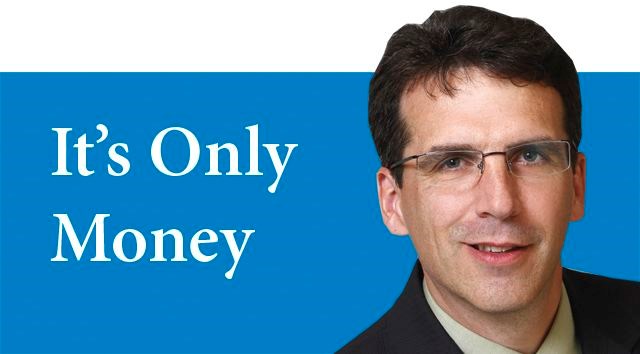They called us the Bobbsey Twins. Both the same height, the same age, dark-haired, and always hungry, we played hockey in the same division, grew up in the same lower middle class neighborhood, and both came from broken homes. We got to know each other on our way home from a series of detentions after school, one of which was for fighting with each other. We were typical 10-year-old boys who would rather eat erasers than focus on fixing our school work.
So, when I joined his hockey team for a picnic at a local lake, everyone assumed that I could swim as well as him. And when several guys decided to head for the edge of the swimming area, about 75 metres from the shore, I didn't dare let on that I barely passed level two of swimming. With a worried look that said: "Help!" I glanced at my friend's mother, a registered nurse.
"Oh, you'll be all right, go ahead," she said confidently.
"Nurses know stuff about deadly risks," I thought to myself. I looked back at her again to make sure. She gestured nonchalantly with her hand: "Go."
For the first 25 metres I was actually sprinting at the head of the group, but they gracefully passed me in the second segment, and were well rested at the rope by the time I arrived there a few minutes later, dogpaddling. Bored with the delay, they immediately turned around and headed for shore, none of them particularly worried about me, despite my obvious hyperventilating. The light rope-work of buoys was not solid enough to give me any respite, so the only choice was to swim back right away.
Almost drowning is easily the most horrific experience I've ever had. My friend stayed close to me on the way back, and although he never touched me, his encouragement and coaching probably saved my life. It was a mistake I would never, ever repeat.
So... yeah, nurses are not lifeguards.
Who is the real advisor?
When I meet with a new potential client, I ask a long series of questions designed to dive deeply in to their story. During these conversations I sometimes find out who the real advisor is, and I have to decide if I can live with that. Is it a friend-of-a-friend in Cleveland, a savant nephew, or maybe their dog-walker? Some of these ad hoc advisors are actually pretty good. But the mismatching of skills with financial risk analysis risks can also be as deadly, financially speaking, as faking a surgeon's resume.
In due course, if things go well, I might earn the trust necessary to have a meaningful professional relationship with them, but sometimes I'm just a bystander - a mistress.
One of the biggest risks of amateur advising is context, or in other words, suitability.
Take this newspaper. Like so many other papers, it provides an instructive example every day of precisely how not to report on financial markets. In the financial section, each day there is a list of purported "winners and losers." The problem is that the system used for compiling these lists results in reporting miniscule, and highly-volatile penny stocks.
Taking financial advice from an amateur might work out fine, but training matters as much in my business does in yours. And a good, earnest advisor is usually worth keeping on the payroll.
The following three conclusions are derived from an Ipsos Reid study from October 2011.
1) Professionally advised clients have greater net worth. Investors working with advisors are shown to have three times the net worth and four times the investable assets of those who don't work with an advisor. And, despite the prevailing opinion that advisors only work with the wealthy, the majority of Canadians had investable assets of under $25,000 at the beginning of the advisory relationship.
2) Professionally-advised clients are more successful savers. Advisors help Canadians in a range of household income brackets stay on track by ensuring they're saving and investing regularly.
3) Professionally-advised clients have greater discipline in volatile markets. Sticking to a financial plan can be a challenge, especially through volatile markets. Having professional advice to guide you through difficult markets can play a vital role in helping you stay focused on your long-term goals.
4) An advisor should provide other services beyond just managing your investments, such as helping you understand wills and estates, insurance needs and tax planning. Financial planning that's tailored to your individual goals and situation can evolve with your life stages.
Mark Ryan is an investment advisor with RBC Dominion Securities Inc. (member -Canadian Investor Protection Fund).



